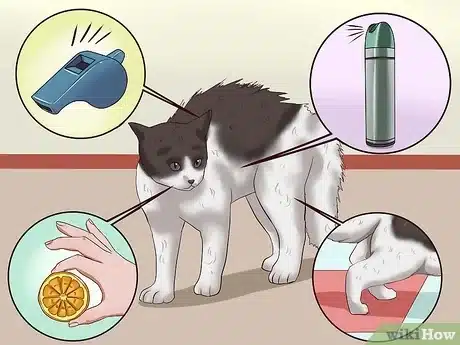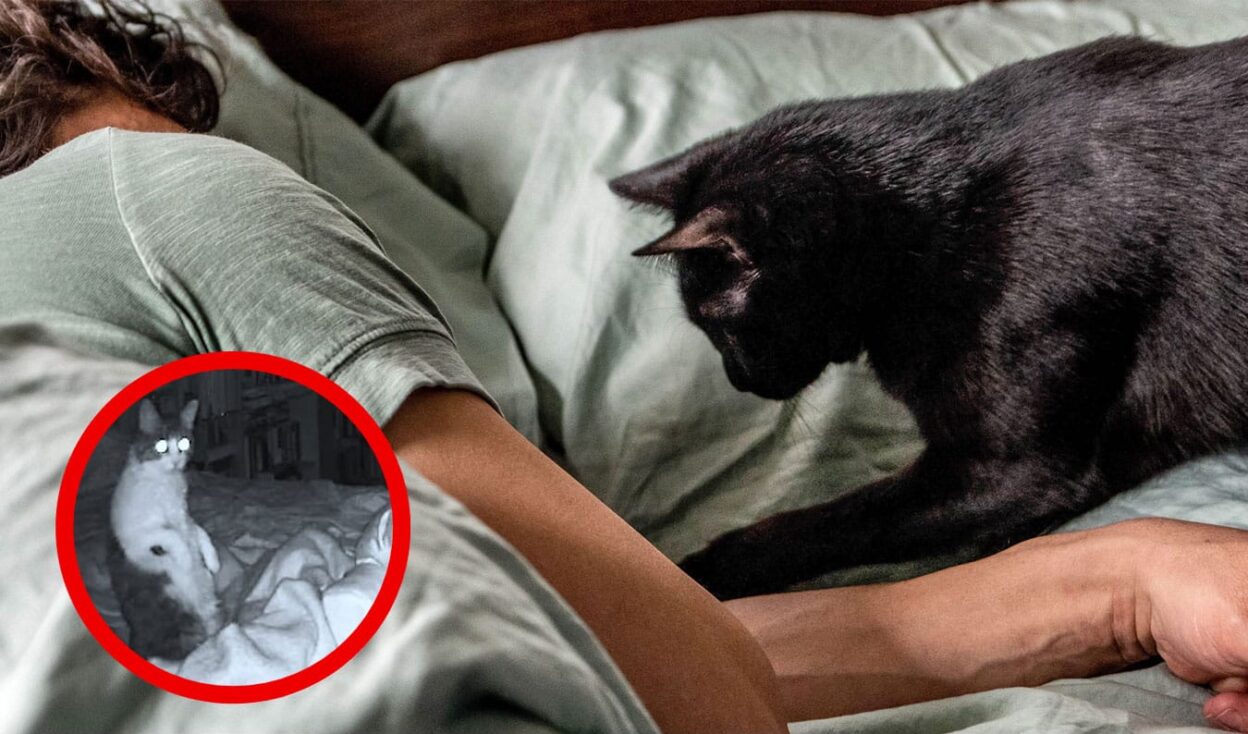Do you let your cat curl up on your bed at night? It might seem harmless, even comforting. However, what if I told you that your cat’s nighttime behavior could be more sinister than you think? You won’t let your precious cat sleep in bed at night with you after this. Cats are known for their mysterious and independent nature, but some of their nocturnal habits might leave you reconsidering bedtime cuddles.
Let’s explore why your beloved feline friend could be a little too unpredictable to share your bed after dark.
The Mysterious Nature of Cats at Night
Cats are crepuscular creatures, meaning they’re most active during dawn and dusk. While this might not seem alarming, their nighttime activities can sometimes appear strange or even eerie. Some cat owners report witnessing odd behaviors like intense staring, seemingly aimless roaming, or sudden bursts of energy known as “cat zoomies.”

Cats are also incredibly sensitive to their surroundings. At night, they may respond to stimuli that humans can’t perceive. This heightened awareness is part of what makes them excellent hunters, but it can also lead to unsettling antics in the middle of the night.
Why Cats Behave Strangely at Night
Your cat’s behavior could stem from:
- Instinctual Hunting Patterns: Even domesticated cats have a strong prey drive.
- Unseen Stimuli: Their sharp senses pick up sounds and movements invisible to you.
- Energy Bursts: Cats often store energy during the day and release it at night.
While these behaviors are generally harmless, they can feel unnerving when you’re trying to sleep.
The Myth of Possessed Cats
Throughout history, cats have been linked to supernatural beliefs. In folklore, they were often considered mystical creatures, capable of seeing spirits or harboring otherworldly entities. While there’s no scientific evidence to support this, a cat’s nighttime antics can feed into these myths.

For instance, their habit of staring at seemingly empty spaces or reacting to unseen movements can feel unsettling. Some owners might even joke that their cat is “possessed” when they display erratic behavior like:
- Darting around the house with no apparent cause.
- Fixating on a corner or ceiling.
- Making unusual vocalizations at odd hours.
Although these actions are usually explainable, they can make sharing your bed a little less appealing.
Health and Safety Concerns of Sleeping with Your Cat
Even if you think your cat is spooky, there are practical reasons to reconsider allowing them in your bed:
1. Allergies and Hygiene
Cats can carry allergens like dander, which may irritate your respiratory system. They also walk through litter boxes, potentially spreading germs to your sleeping space.
2. Disrupted Sleep
Cats often move around at night, jumping on and off the bed or kneading blankets. Their activity can disrupt your sleep cycle, leaving you groggy in the morning.

3. Unpredictable Behavior
While cuddling your cat can be soothing, their claws and sudden movements could lead to accidental scratches.
Tips to Manage Your Cat’s Nighttime Behavior
If you decide it’s time to establish boundaries, here are some strategies:
- Create a Comfortable Space: Set up a cozy bed or perch for your cat in another room.
- Provide Nighttime Toys: Interactive toys can help burn off their energy before bedtime.
- Stick to a Feeding Schedule: Feeding your cat earlier in the evening can reduce late-night energy spikes.
- Use Calming Products: Cat pheromone diffusers or sprays may help create a more relaxing environment.
- Establish a Routine: Consistent playtime and feeding schedules help regulate their energy levels.

Conclusion: Keep the Mystique, Not the Mischief
Cats are wonderful companions, full of charm and quirks. Their nighttime habits, however, might be best enjoyed from a distance. By understanding their behavior and setting boundaries, you can ensure both you and your feline friend get the rest you need.
Do you let your cat sleep in your bed? Share your experiences and thoughts in the comments below!




